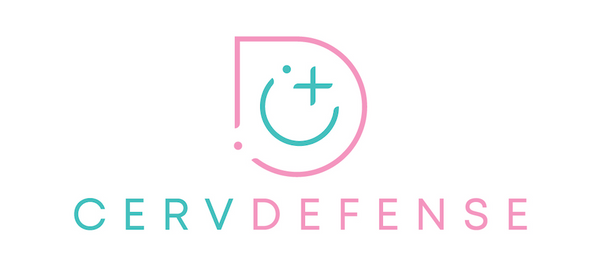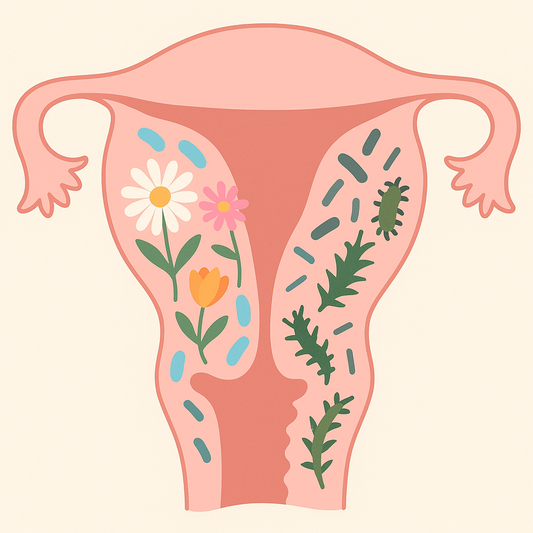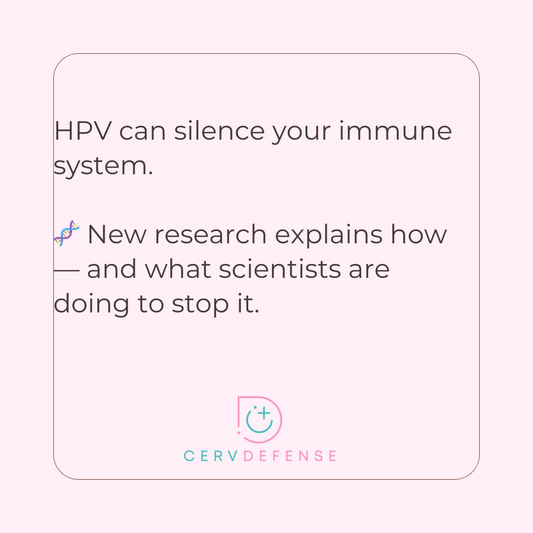
Why you (likely) need supplements to support your cervical health
Share
Are the Current RDAs Enough for Optimal Cervical Health?
The daily recommended dietary allowances (RDAs) are guidelines created by the government to indicate how much of certain vitamins, minerals, and other nutrients we need to be healthy. Additionally, the percentage of RDAs is listed on food labeling, which in theory makes it easy to know how much of any nutrient we are consuming. So, as long as we're getting 100 percent of all key nutrients, we should be good, right?
Not so fast. The problem is how "healthy" is defined. The current RDAs are the minimum amount of vitamins and minerals you need to avoid a deficiency disease, not the amount required for optimal health, including cervical health. For example, the amount of vitamin D needed to prevent rickets is about 30 units a day. However, the amount needed for optimal health could vary from anywhere between 2,000 to 10,000 units of vitamin D3 a day – if not more. The same is true for most other nutrients, which are crucial for maintaining a healthy cervix and preventing conditions such as cervical dysplasia and cervical cancer.
Nutritional Deficiencies Are Rampant
According to government studies, more than 90 percent of Americans are deficient in one or more nutrients at the RDA level. In other words, nine in ten Americans aren't even getting the absolute minimum amount of one or more essential nutrients to avoid disease. This is particularly concerning when it comes to cervical cancer screening and HPV prevention, as proper nutrition is vital for a healthy immune system and cervical health.
Why Do We Need Extra Vitamins and Minerals Now?
If you lived like our ancestors and hunted and gathered your own wild food, you might not need supplements. Our ancestors consumed a diverse range of wild plants and animals, rich in omega-3 fats, phytonutrients, vitamins, and minerals. They also spent ample time outdoors in the sun and were not exposed to modern environmental toxins or chronic stress. For the rest of us, supplements are essential insurance against our nutrient-depleted diet, toxic environment, and high-stress lives, which all affect reproductive health and the risk of developing cervical cancer.
Reasons Why RDAs May Not Be Enough
- Nutrient Depletion in the Soil: Modern farming practices have depleted the soil of many nutrients, making our food less nutritious than it used to be.
- Environmental Toxins: Daily exposure to pesticides, herbicides, and heavy metals can interfere with the absorption and utilization of nutrients, impacting cervical health.
- Chronic Stress: Chronic stress can hinder the absorption and utilization of nutrients, weakening the body's defenses against cervical dysplasia and cancer.
- Certain Medical Conditions: Conditions such as celiac disease and inflammatory bowel disease can interfere with nutrient absorption, further complicating cervical health.
Ensuring Adequate Nutrient Intake
Research has found that women with abnormal cervical cells and cervical cancer are often deficient in many powerful antioxidants and nutrients. This information, published in leading medical journals such as The American Journal of Obstetrics and Gynecology, highlights the importance of adequate nutrition for cervical health.
Tips for Choosing and Taking Supplements
- Choose High-Quality Supplements: Opt for reputable brands that ensure the purity and potency of their products. For example, you may consider supplements like CervDefense for supporting cervical health.
- Start with Low Doses: Gradually increase the dose as tolerated to avoid any adverse effects.
- Consult Your Doctor: Always talk to your doctor before taking any supplements, especially if you have underlying health conditions or are taking medications.
Conclusion
While the current RDAs provide a baseline to avoid deficiency diseases, they may not be enough for optimal health, particularly for maintaining a healthy cervix and preventing cervical cancer. By choosing high-quality supplements and consulting with your doctor, you can help ensure that you are getting the nutrients you need for optimal health and well-being.



